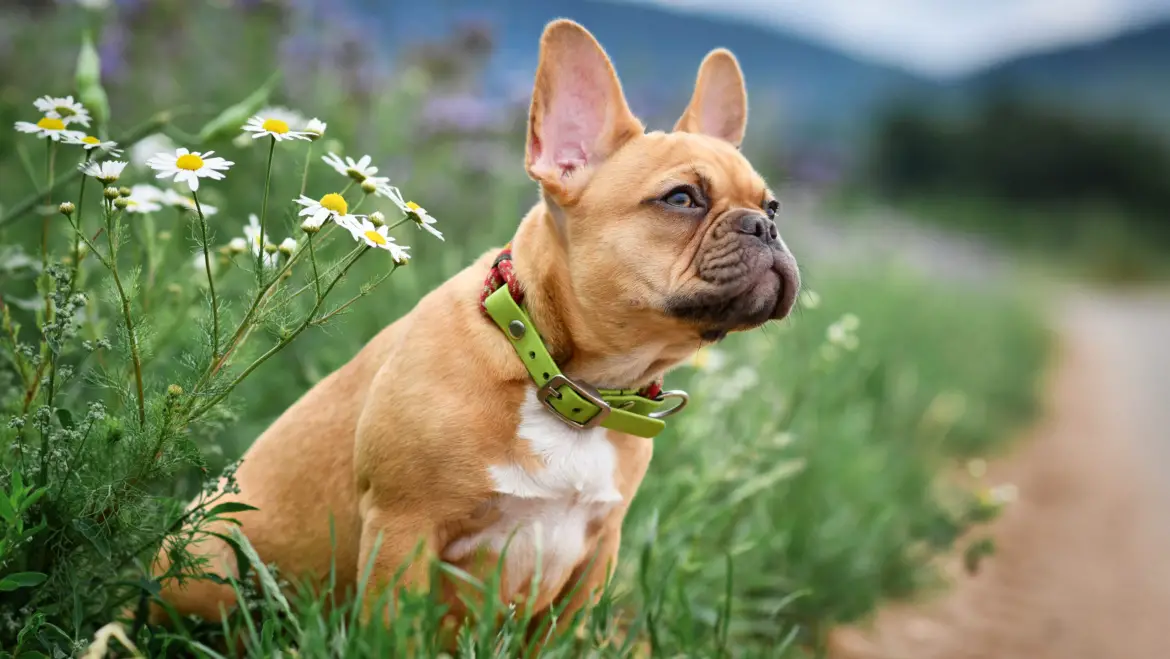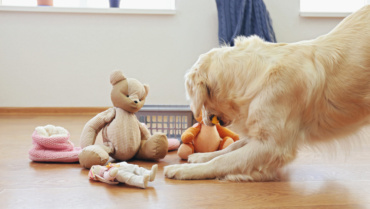Ruff ruff! Are you a fellow dog lover seeking ways to keep your furry friend healthy and happy? Look no further than this blog post, where we’ll be discussing everything from what foods to feed your pup to exercise routines that will have them wagging their tail non-stop.
Whether you’re a seasoned pet owner or just got your first furry friend, these tips are sure to make both of your lives brighter. So grab a leash (and maybe some treats), and let’s get started on the road to optimal canine health!
The Basics: What Every Dog Owner Should Know
As a dog owner, it is important to be aware of the basics of dog care in order to keep your furry friend happy and healthy. Here are some tips to get you started: Providing proper nutrition for your dog is essential for their overall health. Feed them a balanced diet of high-quality food that is appropriate for their age, breed, and activity level.
Dogs need plenty of exercise to stay healthy, both physically and mentally. Get them out for walks or runs regularly, and provide them with toys and other forms of stimulation to keep them active. Grooming is important for keeping your dog clean and healthy, and can also be a bonding experience between you and your pet. Brush their coat regularly, trim their nails as needed, and give them regular baths using a mild shampoo.
Proper dental care is essential for dogs just as it is for humans. Brush their teeth regularly with doggie toothpaste, and make sure to take them in for professional cleanings as recommended by your veterinarian. Keep an eye on your dog’s health by observing them closely on a daily basis. Be on the lookout for changes in energy level, appetite, weight, elimination habits, or behavior that could indicate a health problem. If you notice anything out of the ordinary, don’t hesitate to contact your veterinarian.
What to Feed Your Dog
When it comes to your dog’s diet, there are a lot of options out there. But how do you know what’s best for your pup? Here are a few things to keep in mind when choosing food for your four-legged friend:
1. Check the label: Just like human food, dog food labels can be confusing. But as long as you check the ingredients and make sure there’s no artificial flavors or preservatives, you should be good to go.
2. Consider your dog’s age and activity level: Puppies and active adult dogs need more calories than sedentary seniors. Your veterinarian can help you determine how much food your individual dog needs.
3. Choose quality over quantity: When it comes to dog food, you get what you pay for. Cheap brands may have fillers and other unhealthy ingredients that can cause health problems down the road. Spending a little extra on quality food now will pay off in the long run.
4. Add some variety: Dogs love variety just as much as we do! Mixing up their diet with different types of food (like wet food, dry food, or raw meat) will keep them happy and healthy.
5. Know what to avoid: Certain foods that are safe for humans can be toxic to dogs, so it’s important to do your research before feeding anything new to your pet. Common hazardous foods include chocolate, grapes
Important Health Vaccines and Check Ups
Dogs are susceptible to a wide variety of health problems, many of which can be prevented with proper vaccinated and routine check-ups. Below is a list of important health vaccines and check-ups for dogs: Routine Check-Ups: Dogs should have a routine check-up at least once per year with their veterinarian. This allows the vet to catch any potential health problems early and provide the appropriate treatment.
Vaccinations: Vaccinations are an important part of preventative care for dogs. Dogs should be vaccinated against common diseases such as rabies, distemper, and parvovirus. Booster shots may be required annually or every few years depending on the vaccine.
Heartworm Test: Dogs should be tested for heartworm disease at least once per year (more frequently in areas where the disease is prevalent). Heartworm disease is a serious and potentially fatal condition caused by parasitic worms that live in the heart and blood vessels of infected animals.
Intestinal Parasite Testing: Intestinal parasites are common in dogs and can cause a variety of health problems. Dogs should be tested for parasites yearly, especially if they go outside often or have contact with other animals.
Grooming Habits
As a pet owner, it’s important to keep up with your dog’s grooming habits to maintain their health and happiness. Here are some tips:
Brushing: Brushing your dog’s fur regularly helps to remove dirt, debris, and loose hair. It also helps to distribute natural oils throughout their coat and can help reduce shedding. How often you need to brush your dog depends on their breed and coat type – consult with your veterinarian or groomer for guidance.
Bathing: Bathing your dog helps to remove any dirt, debris, and odors that regular brushing may miss. How often you need to bathe your dog also depends on their breed and coat type – again, consult with your veterinarian or groomer for guidance. When bathing your dog, be sure to use a gentle, canine-specific shampoo that won’t strip their natural oils or irritate their skin.
Nail care: trimming or grinding your dog’s nails regularly is important for keeping them comfortable and preventing painful issues like overgrown nails or ingrown toe nails. How often you need to trim or grind depends on how quickly your dog’s nails grow – typically, smaller dogs need more frequent nail care than larger dogs. If you’re not comfortable doing this yourself, most veterinarians and groomers offer this service. Ear care: cleaning your dog’s ears regularly helps prevent wax build-up and infection
Keeping Your Pet Safe and Secure
As a pet owner, it is your responsibility to keep your furry friend safe and secure. Here are some tips to help you do just that:
1. Proper Identification: Make sure your pet always has on a collar with ID tags. This will help ensure that if they ever get lost, they can easily be returned to you.
2. Leash Training: It is important to train your pet to walk on a leash so that they do not run off and get lost or hurt.
3. Keep Their Shots Up-To-Date: Regularly taking your pet to the vet for check-ups and vaccines is crucial in keeping them healthy and happy.
4. Spaying/Neutering: By spaying or neutering your pet, you can help reduce the risk of them running away or getting into fights with other animals.
5. Proper Diet: Feeding your pet a nutritious diet will help them stay healthy and fit. Avoid giving them table scraps as this can lead to obesity and other health problems down the road.
Exercise Tips for Your Dog
Assuming your dog is healthy and doesn’t have any special needs that limit their ability to exercise, here are a few tips to help you get started:
1. Start slow and build up gradually. Just like with humans, it’s important not to overdo it when starting a new exercise routine. Start with short sessions and increase the time and intensity gradually.
2. Mix it up. Dogs can get bored just like we do, so mixing up their exercise routine is important. Try different types of activities such as walks, runs, hikes, swimming, playing fetch, or even agility courses.
3. Make it fun! If your dog isn’t enjoying their exercise routine, they won’t stick with it. So find activities that both you and your pup enjoy and make exercising something you both look forward to.
4. Be consistent. Just like with any new habit, forming a consistent exercise routine takes time and effort. But the payoff is worth it—for both you and your dog!
How to Stay Calm When Dealing with a Nervous Pet
No matter how much we love our pets, there are times when they can be a real handful. Dealing with a nervous pet can be especially challenging, but there are some things you can do to help keep them calm. If your pet is prone to anxiety or stress, try to create a calm environment for them.
This may mean keeping the noise level down and avoid having too many people or animals around. If possible, give them their own space to retreat to when they need some peace and quiet. Exercise is also important for helping to relieve stress in both humans and animals. A good walk or run can help burn off excess energy and calm the nerves.
Playing fetch or other games together can also be a great way to Bond and have fun while getting some exercise. Finally, be sure to give your pet plenty of love and attention. Sometimes all they need is some extra TLC to feel better. By following these tips, you can help your anxious pet feel more relaxed and at ease.
Signs of Illness in Dogs
While every dog is different, there are some general signs of illness that you can look out for in your furry friend. If your dog is exhibiting any of the following behaviors, it may be time to take them to the vet:
-Lethargy or lack of energy
-Decreased appetite or weight loss
-Excessive drinking or urination -Changes in bathroom habits (e.g., diarrhea or incontinence)
-Sudden behavioral changes (e.g., aggression or separation anxiety)
– Increased panting or difficulty breathing
-Flulike symptoms (e.g., fever, sneezing, runny nose)
Conclusion
Taking care of a dog can be an incredibly rewarding experience, but it’s also important to make sure they stay as healthy as possible.
We hope this article has helped you understand some basic tips for keeping your pooch happy and healthy from their food consumption to getting the right amount of exercise.
With these simple steps and a bit of love and attention, you can help ensure that your pup is around for many years to come!





Add Comment